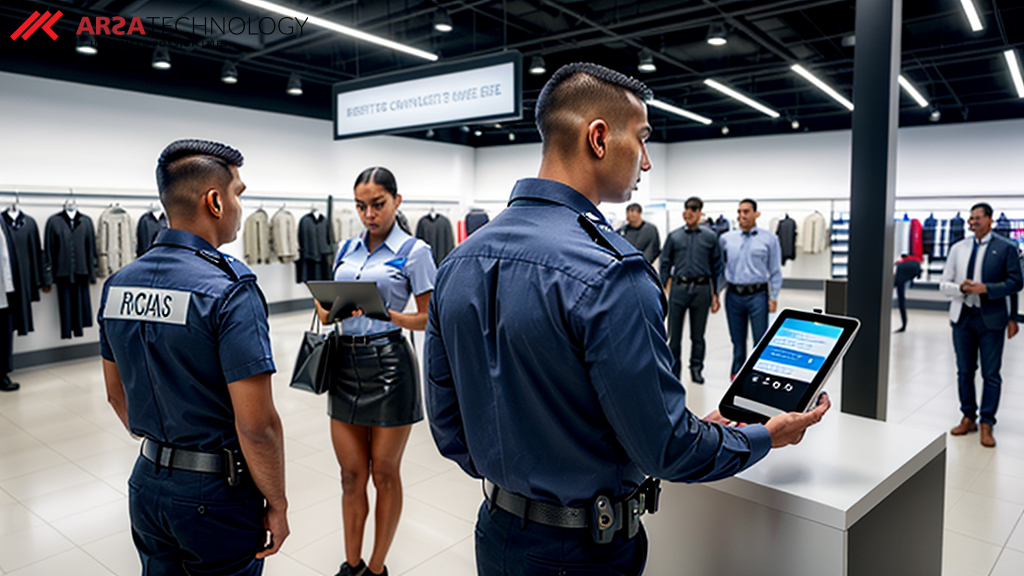Introduction: Overcoming High Losses Due to Theft and Fraud in the Retail Industry
The retail sector, a cornerstone of global commerce, faces an ever-present and escalating challenge: significant financial losses stemming from theft and fraud. From organized retail crime to individual shoplifting and sophisticated payment fraud, these incidents erode profitability, diminish customer trust, and strain operational resources. Traditional security measures, while essential, often prove insufficient against the evolving tactics of fraudsters. Retailers are urgently seeking innovative solutions that can provide a robust, scalable, and intelligent defense.
ARSA Technology understands these critical pain points. Our advanced Face Recognition API offers a transformative approach to security and identity verification within retail environments, moving beyond reactive measures to proactive prevention. This article delves into how integrating ARSA’s biometric API can empower retailers to implement automated Know Your Customer (KYC) verification, significantly mitigate losses, and foster a more secure and efficient shopping experience for everyone.
Understanding the Pervasive Threat of Retail Fraud
The scope of retail fraud is vast, encompassing a spectrum of activities that impact every aspect of a business. Inventory shrinkage, a term that includes theft, administrative errors, and vendor fraud, costs the industry billions annually. Beyond direct financial losses, there are hidden costs: increased insurance premiums, diverted staff resources, and damage to brand reputation. Organized retail crime, in particular, has become a major concern, with sophisticated networks targeting high-value goods and exploiting vulnerabilities across multiple locations.
For retailers, the challenge is not just identifying a fraudulent act after it occurs, but preventing it in real-time. This demands a shift towards intelligent, data-driven security solutions that can accurately identify individuals, verify identities, and flag suspicious behavior before it escalates into a significant loss.
The Strategic Advantage of Biometric Identity Verification in Retail
Biometric technology, particularly face recognition, offers a powerful answer to many of retail’s security dilemmas. Unlike traditional methods such as ID cards or passwords, which can be lost, stolen, or forged, facial biometrics provide a unique, non-transferable identifier. This inherent security makes it an ideal tool for robust identity verification and authentication.
In a retail context, this translates into several strategic advantages:
* Enhanced Loss Prevention: By accurately identifying individuals, retailers can deter repeat offenders, prevent fraudulent returns, and secure high-value transactions.
* Streamlined Operations: Automated identity checks can speed up processes like age verification for restricted goods, loyalty program enrollment, and secure access for staff.
* Improved Customer Experience: While security is paramount, the goal is also to create a seamless and trustworthy environment for legitimate customers. Well-implemented biometric solutions can achieve this without being intrusive.
* Compliance and Risk Mitigation: Meeting regulatory requirements for certain transactions or age-restricted sales becomes more straightforward and auditable.
ARSA’s Face Recognition API: A Cornerstone for Retail Security
ARSA Technology’s Face Recognition API is engineered for precision, speed, and scalability, making it an ideal solution for the dynamic retail environment. It provides a robust framework for developers to integrate advanced facial recognition capabilities into existing security systems, point-of-sale (POS) applications, loyalty programs, and even smart surveillance infrastructure.
The API’s core functionality revolves around accurately detecting and verifying faces. This includes:
* 1:1 Verification: Confirming if a person is who they claim to be by comparing a live capture or new image against a stored reference image. This is crucial for secure identity verification solutions in scenarios like high-value purchases or membership sign-ups.
* 1:N Identification: Searching a database of known faces to identify an individual from a single image. This can be invaluable for identifying known shoplifters or individuals banned from premises.
* Face Detection and Analysis: Pinpointing faces within an image or video stream and extracting key attributes, which can be used for demographic analysis (while respecting privacy) or to trigger security alerts.
To see the API in action and understand its capabilities firsthand, try our interactive demo on RapidAPI. This playground allows developers and solutions architects to experiment with the API’s features and understand its potential without needing to write any code.
Automated KYC in Retail: Beyond Traditional Boundaries
Automated KYC (Know Your Customer) verification, traditionally associated with financial services, is increasingly relevant in retail. By leveraging the Face Recognition API, retailers can implement KYC processes that enhance security and compliance across various touchpoints:
- High-Value Purchase Verification: For expensive items like electronics or luxury goods, verifying the customer’s identity at the point of sale can significantly reduce fraud and chargebacks. This adds an extra layer of assurance for both the retailer and the legitimate customer.
- Loyalty Program Enrollment and Management: Biometric verification can streamline the sign-up process for loyalty programs, ensuring unique enrollments and preventing account sharing or fraudulent point redemption. It also offers a secure way for customers to access their accounts without physical cards.
- Age Verification for Restricted Sales: For products like alcohol, tobacco, or certain pharmaceuticals, automated age verification using face recognition can ensure compliance with legal requirements, reducing the burden on staff and minimizing human error.
- Preventing Fraudulent Returns: By linking customer faces to purchase histories, retailers can identify individuals attempting to return stolen merchandise or engage in serial return fraud.
- Enhanced Employee Access Control: Beyond customer-facing applications, face recognition can secure staff access to restricted areas, warehouses, or sensitive data systems, improving internal security protocols.
Integrating for Impact: Key Considerations for Retail Solutions
Implementing a Face Recognition API solution requires careful planning to maximize its benefits while ensuring ethical deployment and user acceptance. Developers and solutions architects should consider:
- Privacy and Consent: Adhering to data privacy regulations (e.g., GDPR, CCPA) is paramount. Clear communication with customers about data usage and obtaining explicit consent are crucial. ARSA’s API is designed with privacy in mind, focusing on secure processing.
- Scalability and Performance: Retail environments are high-traffic and demand real-time processing. The chosen API must be able to handle a large volume of requests quickly and reliably. ARSA Technology’s infrastructure is built for enterprise-grade performance.
- Integration with Existing Systems: A successful implementation will seamlessly integrate with current POS systems, CRM platforms, and security infrastructure. The API’s flexibility allows for diverse integration strategies.
- Combining Biometrics for Robust Security: For the highest level of assurance, face recognition can be combined with other biometric modalities. For instance, pairing face recognition with preventing fraud with liveness detection is critical. Liveness detection ensures that the face presented is from a live person and not a spoofing attempt using a photo, video, or mask, adding an essential layer of anti-fraud protection.
Measuring Success: ROI and Operational Efficiency
The return on investment (ROI) from implementing ARSA’s Face Recognition API in retail can be substantial. Quantifiable benefits include:
- Reduced Shrinkage: Direct prevention of theft and fraud leads to a measurable decrease in inventory losses.
- Lower Operational Costs: Automation of KYC and verification processes reduces manual labor, administrative overhead, and the time spent resolving fraudulent incidents.
- Improved Compliance: Automated age verification and identity checks minimize the risk of fines and legal repercussions associated with non-compliance.
- Enhanced Customer Trust and Experience: A secure environment fosters greater trust, and streamlined processes contribute to a more positive shopping journey, potentially increasing customer loyalty and repeat business.
- Data-Driven Insights: The ability to analyze patterns of activity (while respecting privacy) can provide valuable insights into security hotspots and operational bottlenecks.
Conclusion: Your Next Step Towards a Solution
The retail industry’s battle against theft and fraud is ongoing, but with advanced technological solutions, retailers can gain a significant upper hand. ARSA Technology’s Face Recognition API provides a powerful, precise, and privacy-conscious tool for implementing automated KYC verification, bolstering security, and protecting profitability. By integrating this biometric API, businesses can transform their loss prevention strategies from reactive to proactive, creating a safer, more efficient, and more trustworthy environment for both customers and staff.
We invite developers, solutions architects, and retail leaders to explore the potential of ARSA’s Face Recognition API. The future of retail security is intelligent, and it starts with robust identity verification.
Ready to Solve Your Challenges with AI?
Discover how ARSA Technology can help you overcome your toughest business challenges. Get in touch with our team for a personalized demo and a free API trial.







